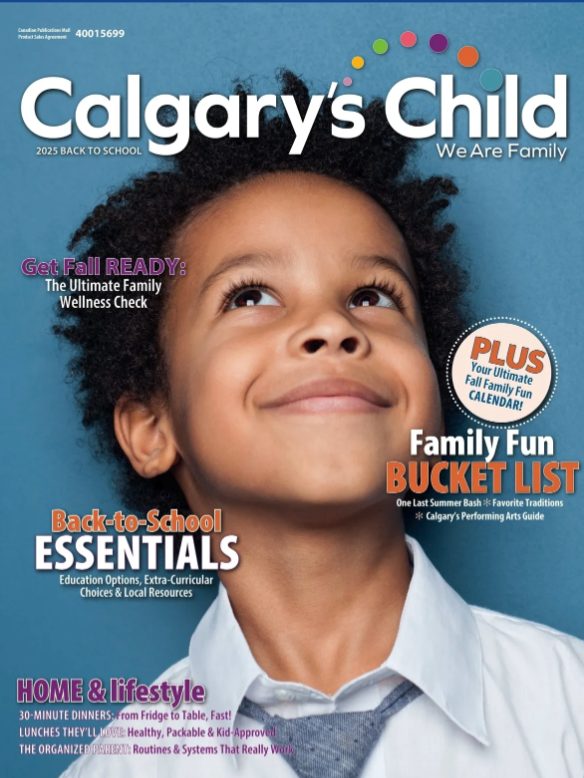As published in Calgary’s Child magazine

Dr. Farah Sunderji, OD
When most people think of vision, they picture an eye chart and 20/20 eyesight. But true vision goes beyond clarity – it’s a complex system involving how the eyes move, focus, work together, and how the brain processes what’s seen. If any of these visual skills are underdeveloped, it can impact a child’s learning, sports performance, and more.
At Eyedeology, our vision therapy programs are designed to strengthen the essential visual skills needed for learning and athletic performance.
Why Vision Matters for Learning
Eighty percent of classroom learning is done visually. Skills like reading, writing, paying attention, and copying from the board all rely on how well a child’s eyes coordinate and communicate with the brain. Some kids may struggle with these tasks even if they have 20/20 vision.
Common vision issues affecting learning and sports include:
-
Convergence Insufficiency: Difficulty keeping both eyes aligned when focusing on near tasks. This can cause headaches, eye strain, and reduced concentration during reading or homework. In sports, it may affect depth perception and accuracy, making it harder to catch a ball, judge distance, or aim precisely.
-
Accommodative Dysfunction: Trouble shifting focus quickly between near and far. This can lead to blurred or double vision, making it hard to follow a fast-moving ball or respond quickly in games.
-
Tracking Issues: Poor eye movement control can cause kids to lose their place while reading, skip words, or misread lines on the board. On the field, this affects their ability to anticipate and react to plays, follow an opponent, or judge the ball’s movement with what the eyes see.
These difficulties can make visual activities tiring, reduce focus, and cause frustration or ultimately avoidance of tasks. Often, children with undetected vision issues are misdiagnosed with attention problems or lack of motivation rather than being pinpointed for the correct cause. It is important to recognize these types of visual deficiencies that require more than just glasses or contact lenses to improve.
How Vision Therapy Helps with Learning and Sports Performance
Optometric vision therapy is a personalized, optometrist-guided program that strengthens skills like eye coordination, tracking, focusing, and visual processing. Through fun, interactive activities, skilled optometrists retrain the visual system to work more efficiently.
How Vision Therapy Helps Athletes
Athletes rely on quick judgement of speed, distance, and position, which requires strong visual skills. Sports vision therapy enhances these abilities by training the eyes, brain, and body to work together. It sharpens reaction times, strengthens eye-body brain connection and gives young athletes a competitive edge.
Supporting Calgary Kids’ Visual Health
As your child gears up for a new school year or sports season, it’s important to ensure their visual system is ready. A comprehensive eye exam, combined with a binocular vision assessment, can identify hidden visual problems before they become a barrier to athletic performance.
How to promote healthy visual development at home:
-
Encourage outdoor play for at least one hour daily.
-
Limit recreational screen time to one hour daily and follow the 20-20-20 rule: every 20 minutes, look 20 feet away for 20 seconds.
-
Provide a nutritious diet rich in leafy greens and foods. Calgary’s parks and sports programs offer great opportunities to build visual-motor skills naturally through play and movement.
If your child avoids reading, complains of headaches, shows a lack of interest in sports despite trying hard, or struggles with keeping up, a binocular vision exam and visual skills assessment may be the missing link. Many children have perfectly healthy eyes (20/20), but their brains aren’t using the visual information effectively.
We have seen first-hand how vision therapy can reignite a child’s love for learning, boost academic achievement, and restore confidence in sports. When visual skills improve, everything else follows.
To learn more visit eyedeology.ca or schedule an assessment call 587-353-5061 or email [email protected]

 Email Us
Email Us







 587-353-5061
587-353-5061 1 (587) 409-1700
1 (587) 409-1700